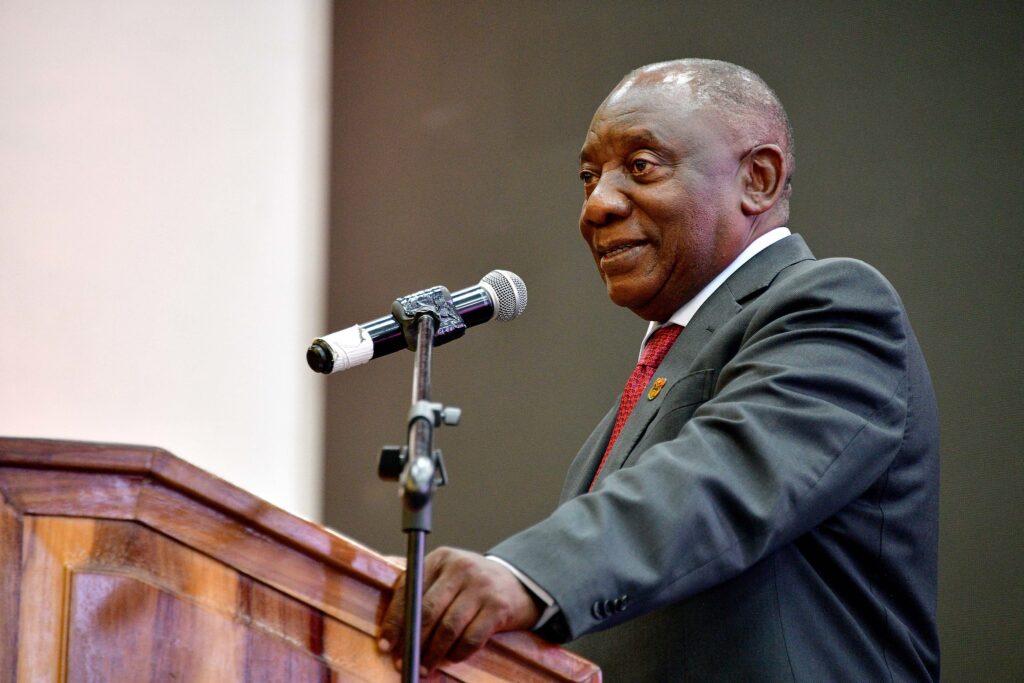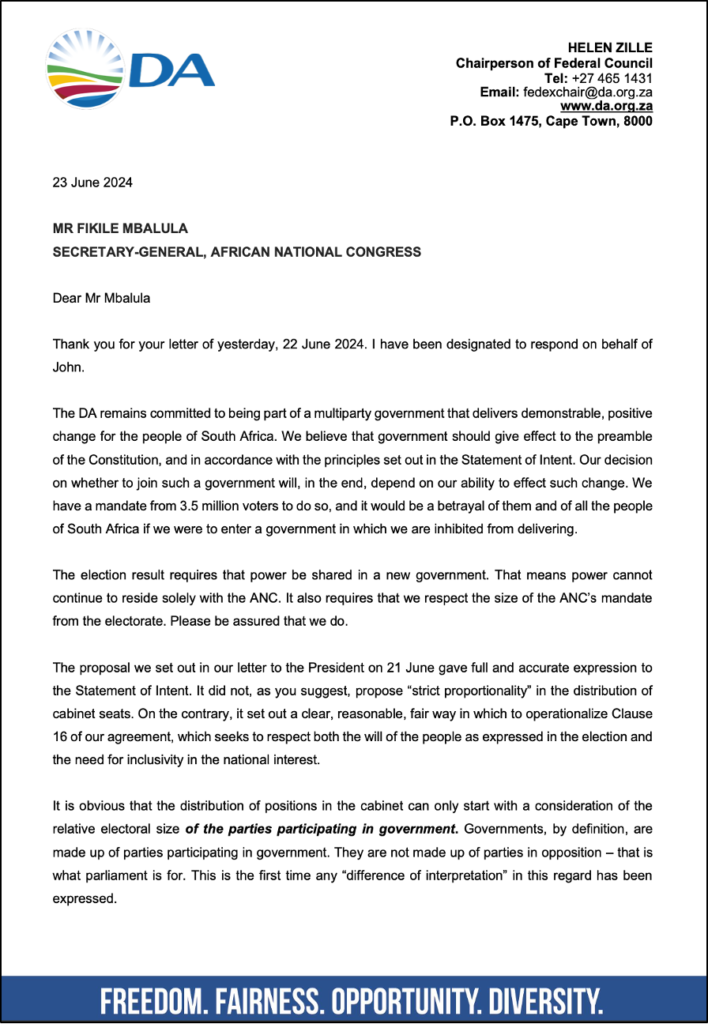‘Radicals’ in DA and ANC threaten South Africa’s GNU, but Middle Ground could lead the way

‘Radicals’ within the Democratic Alliance (DA) and the African National Congress (ANC) are obstructing the formation of a Government of Unity in South Africa. It is time for the serious voices in the middle ground to be heard, an observer told National Security News.
What began as a story of reconciliation—the ANC and the main opposition party in South Africa, the DA agreeing on a power-sharing arrangement or Government of National Unity (GNU)—has now turned into recriminations and a negotiation impasse.
There is a hardline group within the DA who want to punish the ANC, teach them a lesson and make them understand that they are no longer in government. This lobby is said to be behind the demand for twelve Cabinet posts, which the DA demands from the ANC.
Similarly, a populist faction in the ANC preferred a tie-up with the Economic Freedom Fighters (EFF) and the Umkhonto we Sizwe Party (MK Party) of Jacob Zuma, two parties that broke away from the ANC.
The two groups are currently “shouting at each other,” according to analyst but in the middle there are voices in both the ANC and the DA, whose views are not far apart.
In a letter leaked to South African media, the demands of DA federal council chair Helen Zille have been revealed. In it, she demands 12 cabinet posts that the DA wants to take over from the ANC and Zille says the cabinet posts should “rightly” include the position of deputy-president as is standard practice in similar governments around the world.”

“It is also reasonable and fair that the DA should have representation across all cabinet clusters, Zille wrote. To speed matters along, we set out here our preferred portfolios in each cluster,” she said.

Disagreement on the GNU has also delayed the constitution of the Gauteng provincial government with the Premier, Panyaza Lesufi postponing an announcement of his Cabinet. The DA federal chair said participation in Gauteng and Kwazulu-Natal depended on agreement on national level.

If Cabinet posts are allocated according to the support of each party, the DA should be entitled to get seven and a half out of the 31 Cabinet posts, but if some portfolios go to smaller parties, six positions would be reasonable, according to one of the analysts NSN spoke to.
Some sources close to the DA believe that unlike Zille, John Steenhuisen would agree to fewer Cabinet posts – four to six portfolios – as he believes that it depends on what the DA does with those departments and what kind of difference it makes to South Africa.
Another DA source told NSN that he believed that three portfolios: Trade and Industry, Water and Sanitation, and Transport could be offered to the DA.
In his weekly Monday newsletter to his “fellow South Africans,” President Cyril Ramaphosa slammed the parties who “were jockeying for positions.” The GNU, the President said cannot be occupied with “tussles over appointments or squabbles within and between parties.”
“The country’s hopes are pinned on the success of the GNU,” Ramaphosa said. “Our stated commitment to work together constructively and for South Africa’s benefit has generated a great deal of goodwill that we should not squander.
“South Africans are watching. We should not waste our energies on those who stand in the way of our country’s progress or lose momentum over differences that can be resolved,” he stated.
One of the political leaders who agreed to be included in the GNU, Gayton McKenzie of the Patriotic Alliance took to social media platform, X to criticise the DA for delaying the announcement of the Cabinet. He said the DA is power hungry.
With the in-fighting, a stalemate in negotiations and recriminations flying around, some observers indicated that it is time for those who want to find middle ground to stand up and be heard.
The DA, he said, could find itself in a position, “where it is difficult to bring about change in the state departments it rules, if the ANC is forced into a difficult position.”
This sentiment was echoed by another analyst who indicated that the DA could accumulate a number of ministries. However, it might be a Pyrrhic victory because the ANC civil servants they inherit could block reform.
This situation, he said, is reminiscent of the famous British satirical sitcom “Yes Minister,” where a politician lands a job as a Cabinet minister, thinking he is finally in a position of power to carry out much-needed reforms. Yet, he discovers that the aims of the civil servants are not necessarily aligned with his and they continually obstruct progress.


























































































































































































































































































